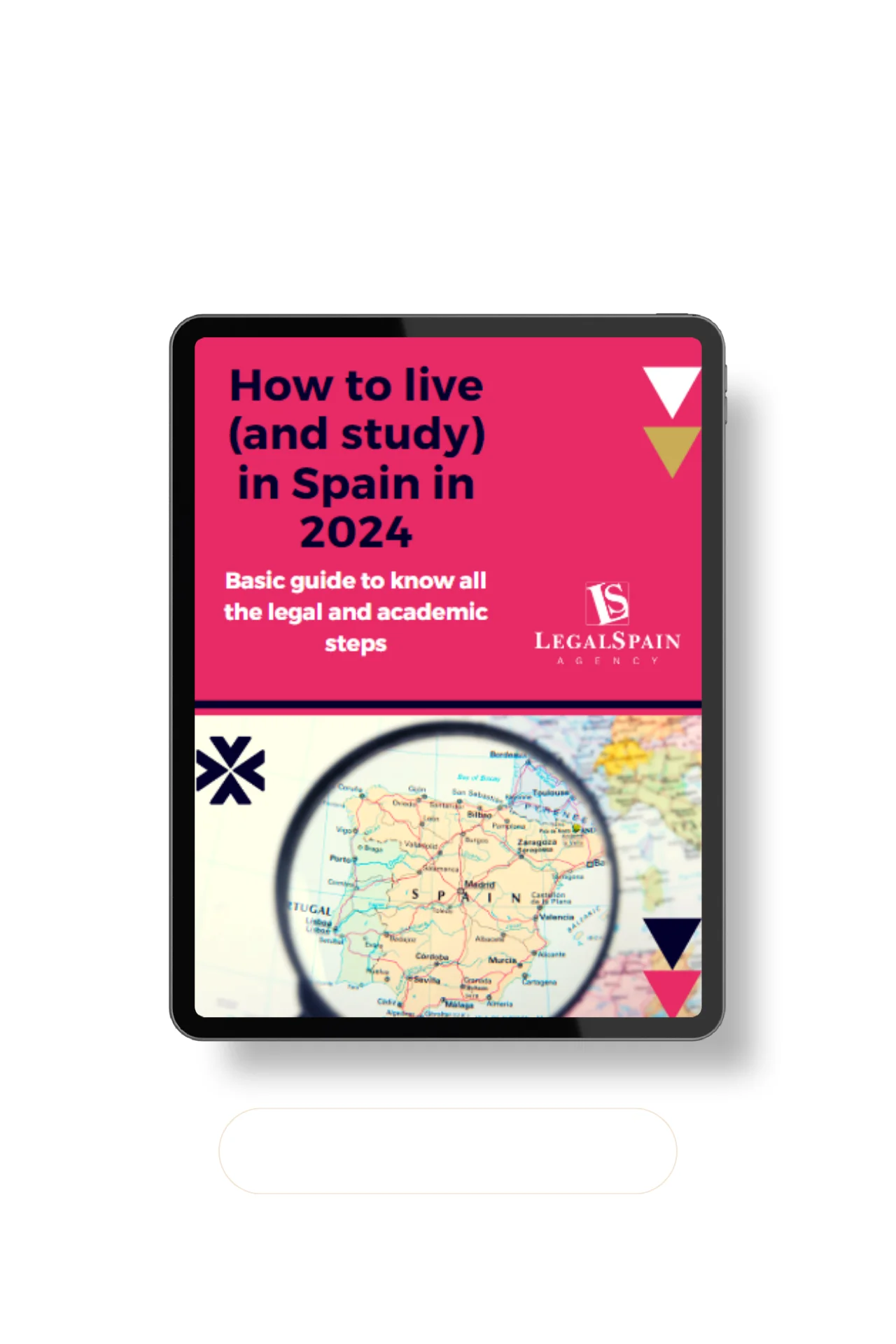Why study a degree in Spain?
Spain is a European Union country and a link to South America, due to its language and cultural ties. Every year, the number of students wanting to access Spanish university education grows, even in 2020 during the pandemic. Likewise, the number of universities is increasing to meet the demand from foreign students. In 2021, a total of 154,428 foreign students enrolled in the Spanish University System (SUE), accounting for 9.5% of total enrollees, 27.4% of doctoral students, and 5.8% of undergraduate students. In this post we will explain how to study in Spain as a foreigner.
Once the growing demand for education in Spain is acknowledged, the reasons for it must be considered. It may be the Spanish culture and connections with many neighboring countries and America. Perhaps it is a way to increase one’s professional and educational scope, as degrees in EU countries are valid throughout their territory. Let’s not forget the much-discussed Spanish lifestyle, with its leisure, gastronomy, biodiversity, and culture.
Requirements for admission to universities
The first thing to know is that each university, whether public or private, has its own admission criteria. It is necessary to know in advance what will be required to access a university and the deadlines to submit the application for admission.
In general, they may ask for:
- Completion of pre-university study in the country of origin.
- Legalized documents (homologations, translations into Spanish, apostilles…).
- Entrance exams (most universities require Specific Competence Tests; some private universities have their own exams).
- Valid identity documents.
- Payment of fees.
It is not necessary to have Spanish nationality to access a university. The process can be carried out with a passport so that the proper documentation for an extended stay in Spain (visa) can be managed later.
Documentation for accessing university studies
To study in Spain, legalized documents of previous studies are required. It will depend on whether the country of educational origin is within the EU (or has reciprocity agreements) or outside the EU.
In the case of non-EU countries, it is necessary to have the homologation of the high school diploma (or equivalent pre-university: secondary, High School…). In most cases, having started the homologation process is sufficient, but in regions like Catalonia, it must be completed before the corresponding admissions. If a university degree has already begun in the country of origin and the student wants to continue studying in Spain, it will be necessary to validate the courses taken so as not to start from the first year. It should be noted that before carrying out the homologation, in most cases, the documentation must be apostilled (Apostille of the Hague) to be presented to the official bodies in Spain.
If the educational system is from the EU, China, or an International Baccalaureate (IB) has been obtained, the UNEDasiss Credential must be submitted. It will be necessary to submit this application correctly in due time and form not to delay university entry.
In both cases, LegalSpain can carry out the procedures to speed up the processes and provide personalized guidance before submission.
Steps to start a university degree
In summary, here are the 5 general steps:
- Decide on the study and university to enter. As you will see in the following point, economic and access reasons are substantially different.
- Start the legalization processes. Regardless of the study or university, documentation will have to be submitted. We strongly recommend knowing the delivery times and formats to avoid mistakes that may cause future problems and compromise the feasibility of university access.
- Preparation and submission of exams. In most cases, tests will need to be passed, either because a public university has been chosen or the private university requires it. In any case, it will be necessary to study or level up knowledge based on assessable content. Escuela PCE is the leading preparatory academy for PCE exams and university entrance. Contact us, and we can provide a special study package.
- Submit documentation and applications to universities. Each university has its deadlines and procedures for requesting admission. Usually, this is managed between June and July.
- Begin the chosen degree. The academic year in Spain begins in September and ends in June of the following year.
How much do Spanish universities cost?
Spain is a country where university fees are lower than its European neighbors. To discuss university fees, we need to differentiate between public and private universities. As mentioned earlier, both have different admissions and processes, as well as their operation, services, and therefore, costs.
Public universities, which host the most students, have prices that depend on the Spanish region. Education is managed by the Autonomous Communities, so each of the 17 regions has different costs. To simplify, studying in Andalusia can cost 900 euros per academic year, while the average cost in Madrid or Catalonia is around 2,000 euros, for example. These amounts are just examples, as fees depend on the degree of experimentation, enrollments (times an exam has been taken for that subject), and credits enrolled in the year (registered subjects).
Private universities have more straightforward admission processes, making it easier for students to access education. In return, the annual cost is higher, as they are not economically regulated by the Autonomous Communities. The price depends on the university and its characteristics, such as professional opportunities, campus, facilities, and others. Prices range from 6,000 to 20,000 euros per year. The difference is significant compared to public universities, but as mentioned, resources and services are invested for their students.
How much does it cost to live in Spain for a student?
In addition to paying the corresponding university fees, there are other costs: those that come with everyday life. These costs can vary, but typically, three main expenses are considered: accommodation, food, and leisure.
Accommodation is the most significant cost for students, especially if they decide to live independently. Rental prices and dormitories (university residences) depend on the Spanish region. Madrid and Barcelona have the highest rental prices, with a shared room in a house costing around 400 euros per month. A university residence can raise the price to around 1,200 euros. In this case, meals are usually included. Lower rental prices can be found in other regions, usually non-capital or non-coastal cities, with rent as low as 200 euros and dormitories for around 800 euros.
Food, except for university residences (included in their price), will be another extra cost. In this case, it is not possible to establish criteria by region or average, so it is usually estimated to be around 200 euros per month on average.
Leisure is not a basic expense, but the experience of living in Spain will require a budget for enjoying services, trips, and entertainment. This will depend on the student’s and their family’s financial capacity, but it could be estimated, on average, at around 80 euros per month. Other costs such as clothing or health are not included, as they can be optional, depending on the student, but they should be considered when estimating expenses.
Thus, living in Spain could mean a monthly expense of around 500 – 1,000 euros for a student, depending on many factors, but this could be a rough estimate of the costs to be faced.
Conclusion
Studying in Spain is popular. Whether it’s for educational, professional, or personal opportunities, it will be a life-changing experience. As you can see, the choices at each step of the process, such as the selection of studies, university, location, housing, leisure, and more, will shape the type of experiences you have. LegalSpain can help simplify and guide each of these decisions to, at the very least, avoid mistakes and save time and money.
In conclusion, Spain offers a unique blend of culture, education, and professional opportunities that make it an attractive destination for international students. The relatively affordable cost of living and tuition fees, compared to other European countries, adds to its appeal. By carefully considering your options and taking advantage of available resources, you can create a rewarding and memorable educational experience in Spain.




